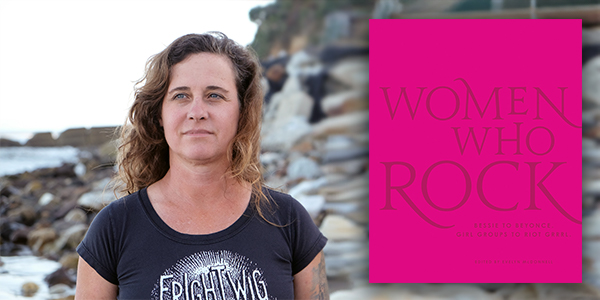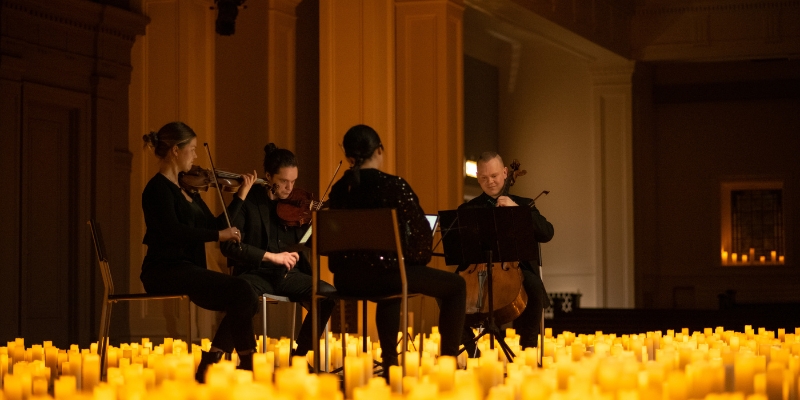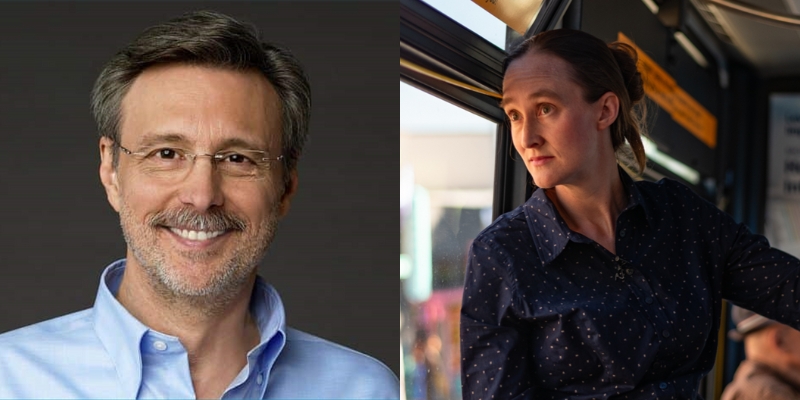“It was always my belief that rock and roll belonged in the hands of the people, not rock stars,” Patti Smith once said. Evelyn McDonnell is doing her part to put rock and roll in the hands of the people with her new book, Women Who Rock: Bessie to Beyonce. Girl Groups to Riot Grrrl. McDonnell, associate professor of journalism at Loyola Marymount University, will be at MoPOP on Friday, October 12th to discuss women who have defined musical history.
But before taking our stage, she took a seat with Town Hall’s Jonathan Shipley to discuss having a crush on Michael Jackson, Rhode Island bands, and her vision of an all-female super group.
JS: What was your first introduction to rock growing up? What bands/singers most influenced you as a tot?
EM: My parents loved music. I grew up in a house with one room centered around the TV and the other, the stereo. I was exposed from a very early age to a variety of genres: jazz, classical, show tunes, and rock. In another life, my mom would have been a musical actress (instead, she was an award-winning high school teacher), so we listened to a lot of cast recordings. I have very early memories of standing on coffee tables and singing and dancing along to “Hair” and “Jesus Christ Superstar” at cocktail parties. We also listened to the Beatles a lot, and Dylan, and Joan Baez; Mom loved Joan Baez. One of my favorite TV shows was the Jackson 5 cartoon show. Michael Jackson was my first crush, the Jackson 5 Greatest Hits my first album. Motown, the sound of young America, indeed!
JS: When you reached high school/college, what bands/singers influenced you?
EM: In high school, I remained a Beatlemaniac. I remember distinctly the day John Lennon was killed. My clock radio woke me up with the news; I woke up crying. Bruce Springsteen was one of the first contemporary artists who really spoke to my life as a kid growing up in an industrial small town in the American heartland. Around the same time I discovered Patti Smith. That was transformational. I was in love with Bruce, but I wanted to be Patti. She was the first artist—a female, a tomboy, a writer—that I could really see myself in. She opened the door to punk rock, which was the defining musical genre of my coming of age, particularly the Clash, the Jam and the Ramones. I didn’t know at the time about the great female punk bands until the Go-Go’s broke through, and Beauty and the Beat provided sweet vindication for my quirky teenage self.
JS: Did you gravitate towards male-led bands or female-led bands? Did that matter to you? In what ways?
EM: I listened to anyone. I was what they now call a poptimist, but I just called populism (which is still the name of my blog). But I always paid particular attention to female artists, because as a woman in the world, I knew we needed each other’s support. I also could often relate to what they were singing about in gendered ways. My first paid article was on a new local band called Throwing Muses. That pretty much set the tone for everything to come.
JS: Have you ever been in a band yourself? If so, what kinds?
EM: I have been in a couple of one-off bands, “off” being the operative word. Both were in Rhode Island. One was a band of music critics that played a benefit every year; I was a backing singer. It was a pretty generic bar band. The other was with a group of friends for a farewell show for a cross-country road trip two of us were embarking on. We were named the Fiendish Thingees.
JS: What was the impetus of this book?
EM: So many important, genius female artists have emerged in the past decade, but no book has gathered or acknowledged them. We also felt it was important to connect today’s women who rock with the ones who paved the way for them. The last book to try to connect all these threads in a big, multi-voice, illustrated fashion came out in the 1990s—Trouble Girls—and so much has happened since then. At the time we started putting this book together, we also felt like it was a historic time for women, what with the U.S. about to elect its first female president, and we wanted to acknowledge our female sheroes. Of course, the context for the book quickly changed, and in a sense, it became more important.
JS: With the women’s marches, you mean? The #MeToo movement?
EM: The book was completed before the #MeToo movement became huge, before the Harvey Weinstein articles came out. So in a sense, it was prescient. But the point is really that assault, harassment, and discrimination have been hurdles for women in the music industry since the beginning, and yet, we’ve persisted. Since Ma Rainey mentored Bessie Smith, women have also been passing each other the torch, which is a lot of what this book is about—sometimes explicitly, as when Alice Bag writes about June Millington, and Peaches salutes Sinead O’Connor. This book was conceived in one political environment and is being published in another one, but because these stories have eternal truths, it remains just as relevant.
JS: Who would be in your all-female band super group? What would you name the band?
EM: Wow, that’s hard. Sandy West on drums. Carol Kaye on bass. Poison Ivy and Sister Rosetta Tharpe on guitar. Bjork on vocals. Aretha on vocals and piano. Sheila E on percussion. It’d be a stylistic mess. I’d call them Girl Genius.
Don’t miss Women Who Rock on October 12. Get your tickets here.


